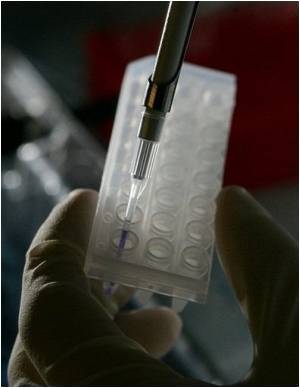The Achilles' heel of cancer cells has been identified by scientists. Several substances inhibiting so-called HDAC enzymes have been studied in trials in recent years.

In the cell, histone deacetylases (HDAC) are responsible for removing small chemical tags called acetyl groups from histone proteins. Histones serve as coils the genetic material wraps around in the nucleus. The presence or absence of acetyl tags determines where genetic material is accessible and can get transcribed.
Now this is where Witt and his colleagues suspect the reason for the problems in clinical application of HDAC inhibitors. Currently available substances equally block all members of the large family of HDAC enzymes. Thus, they interfere with vital cellular functions and also harm healthy cells. This can lead to severe side effects preventing their administration at a sufficient dosage.
Searching for a solution to this dilemma, Witt's team came across a member of the HDAC family, HDAC11, which was identified only recently.
The researchers could show that many cancer cells, including cells of breast, liver and renal cancers, produce extraordinary high levels of HDAC11. This has not been observed in healthy cells, and hardly any specific functions of HDAC11 are known there.
"It therefore seemed obvious that a specific HDAC11 inhibitor would specifically target tumour cells, where this enzyme appears to play a critical role," said Dr. Hedwig Deubzer, first author of the article.
Advertisement
The result: Cancer cells without HDAC11 were impaired in viability and more often underwent cell death (apoptosis). By contrast, loss of HDAC11 did not cause any noticeable changes in normal cells.
Advertisement
Numerous highly specific inhibitors against various cancer-relevant enzymes have been developed in recent years, with some of them already approved as drugs. This encourages the Heidelberg research team, jointly with Bayer Healthcare, to look for a suitable substance that specifically targets HDAC11.
Source-ANI















